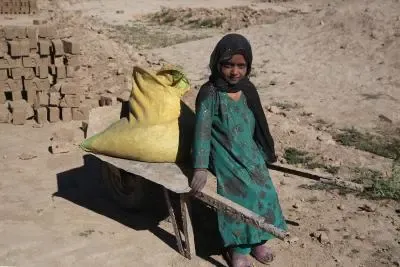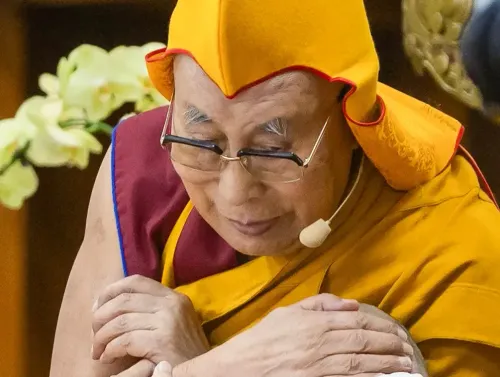Is Pakistan’s Feudal Culture Behind Honour Killings in Sindh’s Graveyard for Dishonoured Women?

Synopsis
Key Takeaways
- Fattu Shah is known for its graveyard of dishonoured women.
- The graveyard holds unmarked graves of women killed for honour.
- Activist Aisha Dharejo has documented this site for 15 years.
- Over 405 honour killings reported in Pakistan in 2024.
- Real change requires challenging feudal and patriarchal norms.
New Delhi, Nov 7 (NationPress) Fattu Shah, a secluded village in northern Sindh, Pakistan, conceals a harrowing truth — a burial site that locals refer to as the “graveyard for dishonoured women.” These unmarked graves, lacking names or any burial rituals, serve as the final resting places for women murdered in the name of “honour,” as reported by DW.
“For 15 years, I’ve been documenting this site — every grave narrates the tale of a woman silenced,” stated researcher and activist Aisha Dharejo, who leads Sindh Suhai Sath, an organization dedicated to aiding survivors of gender-based violence.
She reveals that victims are denied basic burial rites, with their bodies hastily interred in shallow pits.
The Human Rights Commission of Pakistan reports that a minimum of 405 individuals were slain in “honour” crimes in 2024, with Sindh and Punjab exhibiting the highest figures.
Activists assert that the actual number is significantly higher, as numerous cases remain unreported due to the dominance of feudal landlords and tribal customs, as highlighted in the report.
“These murders have little connection to tradition,” Dharejo explained. “They frequently revolve around property, vengeance, or control. Women’s bodies are utilized as currency in family negotiations.”
One survivor, Sobia Batool Shah, recounted her experience to DW, stating that she was assaulted by her father and relatives in Naushahro Feroze for seeking a divorce.
“They rendered me disabled. They stripped away my ability to walk,” she shared. With the support of Dharejo’s organization, she took legal action against her assailants — a rare move in rural Sindh.
Another survivor, Haleema Bhutto, was wed at the age of 12 and later accused of adultery when she refused to forfeit her inheritance. After 18 years of fighting and protesting outside the Islamabad Press Club, she triumphed in a Supreme Court case in 2011, reclaiming her property. “I battled so he couldn’t eliminate me,” Haleema declared.
However, Dharejo cautions that genuine change necessitates the dismantling of feudal and patriarchal systems that sustain violence. “Education and awareness are vital, but unless we challenge existing power structures, women will continue to find themselves in these silent graveyards,” she asserted.









